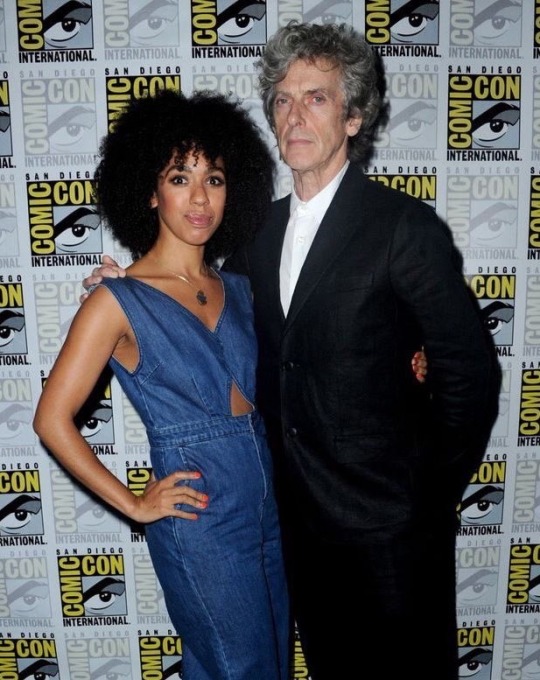#lesbian intergenerational
Explore tagged Tumblr posts
Text
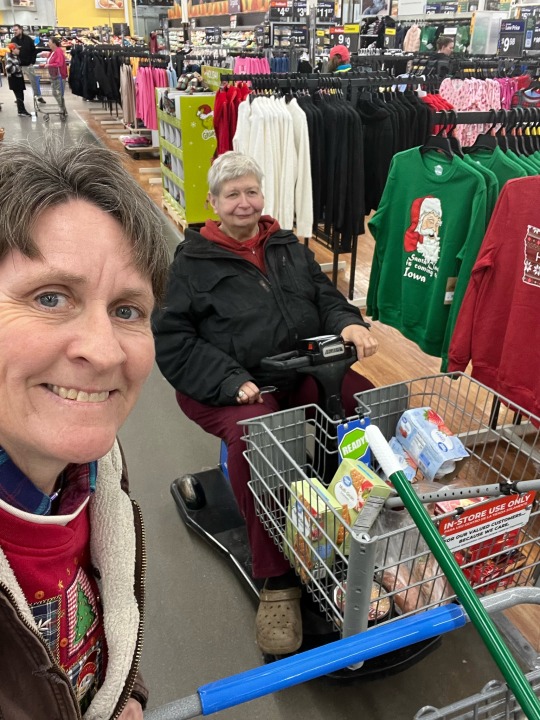
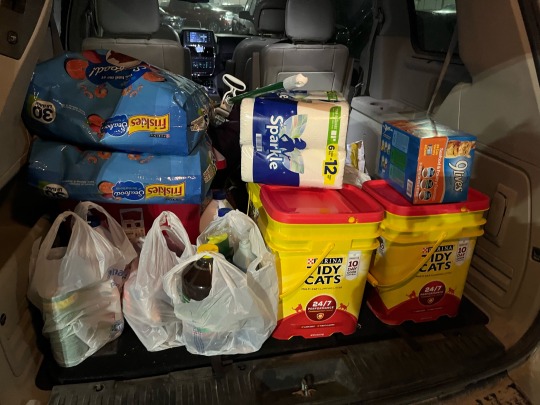
The day before Christmas Eve, with the help of many, I met a new lesbian friend off of TikTok. She needed a new car battery and I know how to change a battery and found out she was only an hour away! Got to meet an elder and break out my tools and get her some much needed supplies! My community, on and off line, is nothing short of incredible. New battery installation complete!!

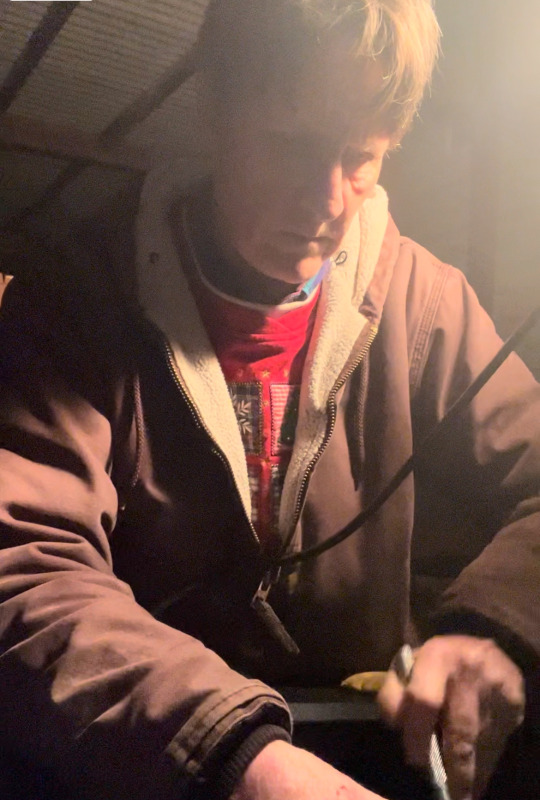
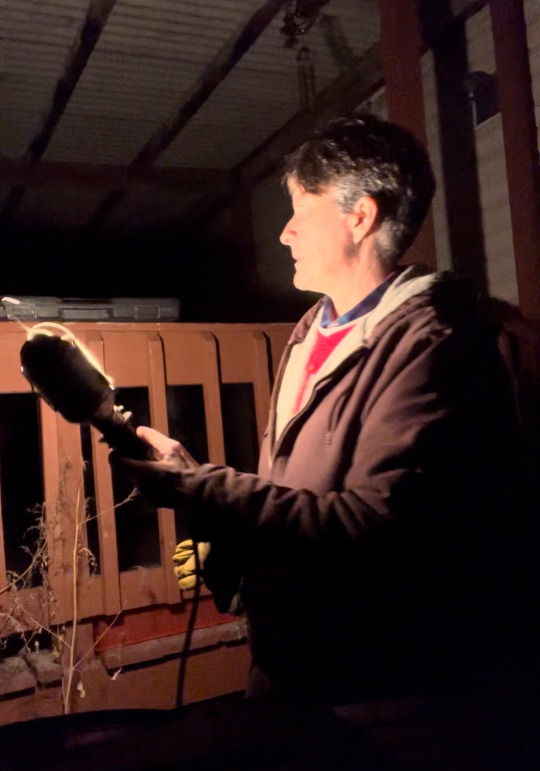
#lesbian#butch#rural life#iowa#lesbians#elder lesbian#older butch#Intergenerational lesbian friendships#helping#car battery replacement
833 notes
·
View notes
Text
Listening to old lesbian women fondly reminisce about going to the same gay bar when they were young that me and my friends go to today is making me so emotional 😭
#I love you lesbians I love you intergenerational connections#it’s been open since 1933 which is so crazy
0 notes
Text
Review: We Deserve Monuments by Jas Hammonds
We Deserve MonumentsJas HammondsRoaring Brook PressPublished November 29, 2022 Amazon | Bookshop | Goodreads About We Deserve Monuments Family secrets, a swoon-worthy romance, and a slow-burn mystery collide in WE DESERVE MONUMENTS, a YA debut from Jas Hammonds that explores how racial violence can ripple down through generations.What’s more important: Knowing the truth or keeping the…

View On WordPress
#Cancer#family#Georgia#grandmother#intergenerational#lesbian#LGBTQIA#Murder#racism#terminally ill#wlw
0 notes
Text
babysitmoms <3
#night went from a walk for my mental health to munchies#smth smth being served cava by a piol#smth smth yes i will smoke weed with these 40 year olds#this is the intergenerational queer bonding they talk about xp#bless#rlly not how i thought this day would go#felt rlly bad for line 80% of my day today lmao#but yeah#lesbian babysit moms got my back#always
0 notes
Text
now she hit me with an "Ok cool." 💀
the pain when your elderly lesbian friend who doesn't speak millennial responds to your texts with "K" 😂😭
#selkie overshares#this obstacle to intergenerational lesbian community must be addressed at the next workshop#lmao
11 notes
·
View notes
Text

Brown Neon
Raquel Gutiérrez
A meditation on southwestern terrains, intergenerational queer dynamics, and surveilled brown artists that crosses physical and conceptual borders. Part butch memoir, part ekphrastic travel diary, part queer family tree, Raquel Gutiéeacute;rrez's debut essay collection, Brown Neon, gleans insight from the sediment of land and relationships. For Gutiérrez, terrain is essential to understanding that no story, no matter how personal, is separate from the space where it unfolds. Whether contemplating the value of adobe as both vernacular architecture and commodified art object, highlighting the feminist wounding and transphobic apparitions haunting the multigenerational lesbian social fabric, or recalling a failed romance, Gutiérrez traverses complex questions of gender, class, identity, and citizenship with curiosity and nuance.
(Affiliate link above)
266 notes
·
View notes
Text
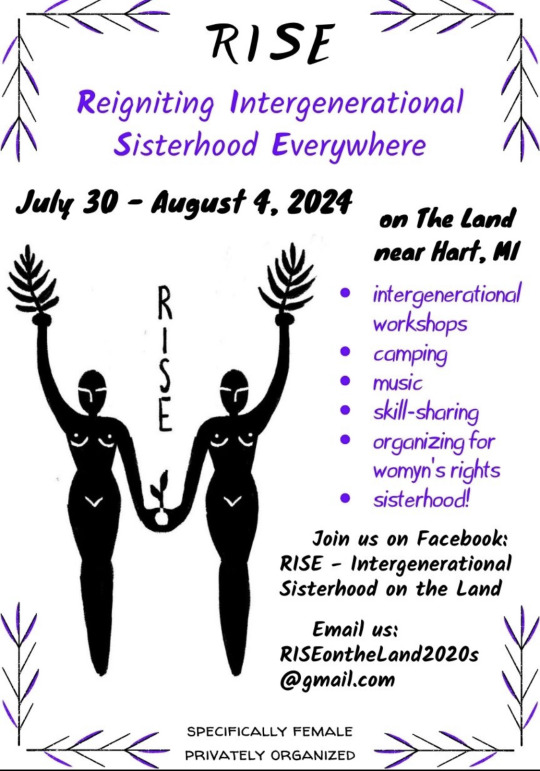
HELLO FRIENDS!
I have been working hard on producing an event on the land this summer in July/AUGUST.
I can’t name names but there are going to be some extremely cool people there, intergenerational lesbian workshops, dyke haircuts, drumming, music (2 NYC based djs!), archery, films by prominent feminists, punk music, folk music an open mic.
I and my co-organizer (also a younger lesbian in her 30s) have worked our butts off making this happen. We have an amazing team of older well respected dykes helping us out 🥹. We’re also sharing the land with WPI so everyday will be filled with music 🎵🎶.
My ask box is totally open for questions, comments and concerns. I also run the email so please reach out to me there also!!!
#radblr#radical feminism#radical feminist#char on char#radical feminists do touch#radfem safe#radical feminist theory#radfems#gender critical#radfem
413 notes
·
View notes
Note
can you make a list of specific relationships tropes(platonic or romantic) pls🫶
List of Relationship Tropes <3
Hope this helps! :) If you like my blog, buy me a coffee☕ and find me on instagram!
Romantic Relationship Tropes:
Friends-to-lovers
Enemies-to-lovers
Forbidden love (it can be an external or internal taboo)
Stuck together - 'trapped in an elevator'
Secret identity (billionaire/royal/celebrity in hiding)
Best friend's brother/sister/ex
Seconc chance romance
Soulmates (soulmate AU prompts)
Fake relationship
Wedding fever - runaway brides/best men/wedding planners/ jilted
Amnesia/mistaken identity
Holiday romances/flings
Opposites attract (similar to enemies to lovers)
Academic rivals (high school/ college)
Unrequited love
Sunny vs. Grumpy
Pen pals to lovers
Matchmaking gone wrong
Sworn off a relationship (then falling in love, of course)
Single parent with new love
Arranged marriage (Arranged Marriage Prompts)
Return to hometown & fall in love with your childhood friend
Bully turned out to be the nice guy
One person being afraid to commit + the other chasing them
Falling in love with someone from the past/future
Tiny guy, huge girl
Other Character Dynamic Tropes:
Badass and child duo (usually, the child will be extraordinarily mature/capable)
Battle couple (like Mr. and Mrs. Smith vibes)
Blood brothers
Brother-sister team - bickering but working perfectly together
Intergenerational friends - being best buddies with your grandparents, which your parent doesn't understand
Translator buddy
Talker plus Doer duo
Student and Master team
'Sensitive guy + the most macho guy ever' duo
Rivals-to-friends
The Shy Guy/Girl + the outging wingman
The popular girl/guy + the copycat
Ride-or-Die found family
A childhood enemy becomes a central part of a friend group
Parents who see their kids become best friends too
Orphans from the same orphange
Long lost siblings finding themselves in each other
A straight girl + lesbian as bffs / a straight guy + gay guy as bffs, becoming each other's wingmen/women
a secret handshake or unique SOS sign that only they know
Girl code/bro code/friendship code
Having set routines, like meeting under ---- tree at --- hour
Family Tropes
Adoption angst
adult adoptee - an adult character is adopted into a different family despite being legally of age
Awkward parent-child bonding efforts
Babies ever after - the child is forever a baby to the parents
Black sheep/ugly duckling
Cannibal clan
Feminine mother, tomboyish daughter
Obnoxious in-laws
Twin Tropes
Angst surviving twin - on twin dies so that other becomes nervous
Single-minded twins - can have a creepy twist...
Evil twin
Playing their own twin
Twin telepathy - twins can pick up on each other's thoughts/emotions
#writers and poets#writing#creative writing#writers on tumblr#creative writers#helping writers#let's write#poets and writers#writeblr#resources for writers#writing help#writing heals#writing habits#how to write#writerscommunity#ao3 writer#writers#writers block#author#write#writer#writerscreed#writer stuff#write that down#write it#write anything#write every day#write up#write me#writing inspiration
198 notes
·
View notes
Note
Hey, I am a new follower here and uhhh.. I just want to ask you how did you manage to get rid of your gender dysphoria?
I never did transition and probably never will be able to because it is illegal in the country I currently live in. But the gender dysphoria remained there for years (8) even if I accept the fact that I will never be able to change my sex, along with my homosexuality.
So maybe it is a difference in experience, with me not being able to experience the harmful placebo of the "right body", but seeing other people expressing how they got themselves cured of severe mental distress makes me wish I knew how to do that.
So, thats why I want to ask, what lead to the cure of gender dysphoria? If it is a correct way to put it.
I don’t know if you’re male or female, but I assume female?
It’s less about “getting rid” of dysphoria and more about understanding what “gender dysphoria” actually is. That differs from person to person, but for most people it’s a combination of things.
For me it was:
1) The pain of growing up female in a world that either treated me as inferior or objectified me. Plain old misogyny.
2) The pain of growing up gay in a homophobic religion and society. Being basically taught during childhood that I was fundamentally different and wrong did a number on my ability to love myself. I’m 33 and it wasn’t until recently that I had any kind of self love.
3) The confusion of growing up gender non-conforming. Not feeling like I could relate to my female peers, feeling like an outsider, never meeting people like me or having any role models who I could see myself in. I didn’t have any kind of blueprint for what my life could be like as an adult - my only reference points for what life as a masculine lesbian would be were negative.
4) The constant anxiety of walking through the world as a gender non-conforming girl, and the way people treated me and acted around me. People don’t treat you well when you’re androgynous or clearly gay, and that led to anxiety and disliking being around people.
5) Feeling like I would be more lovable as a man, as it relates to relationship dynamics and gender roles. I had a feeling that I “made more sense” as a man.
Once I separated the feelings I was having from the idea of “gender dysphoria” as a stand-alone condition, I was able to see them individually for what they really are.
Those feelings were a normal response to being who I was in the world that I lived in.
Is my “gender dysphoria” cured? Depends how you look at it. Being female is still hard. Being a masculine lesbian is still hard. The way people look at me and treat me is still anxiety inducing. But none of that means I’m “supposed” to be a man, for some mystical reason that no one can scientifically explain. And I can work on improving things like my anxiety and self esteem individually.
To put it simply, being “trans” is the same thing as being butch. It’s all the same feelings women have always had, they’re just medicalizing it now instead of helping us learn to love ourselves. The only way to fix it is to build community, especially intergenerational community, and be with each other and be role models for each other.
Hope that helps! 🌈
#feminism#lesbian#detrans#trans#detransition#butch#radical feminism#radblr#ftm#actual lesbians#writing
65 notes
·
View notes
Text
Are we ready to move on from the whole, "ok boomer", "middle aged women are Karens", "I'm not sure we should trust this person because of their age", and "this group that I don't like is probably made up of old people" thinking that is prevailing through our cultures and countries like a plague?
Have we forgotten that the boomer generation was the generation of people that managed to unify by the hundreds of thousands to bring change for several different human rights groups?
We have gay and lesbian elders still alive, who survived the AIDs crisis and were activists for gay liberation and women's liberation in the 70s and 80s, that we can connect with and learn from. They won't be around forever. Many of us are wandering around calling them "cis gays" and "terfs", holy shit. Are we ready to actively listen to them as opposed to attempting to do most of the talking? Are we ready to experience that they might disagree with our own beliefs and perceptions?
We have women who are still alive in our parents and grandparents generations, who were alive when it was legal in America to beat wives and children in public and experienced about the same level of decency as a trashcan by men. Are we ready to listen to their stories, to hear about what their lives were like when they were young women?
We have men and women who were still alive during the height of the struggles against residential boarding schools and civil rights, who still carry experiences from the effects of the Holocaust with them. Are we going to hear what they have to say, or are we going to just performatively listen?
Can we implement the perspective of age into our activism and thoughtful discussions, and actually attempt to incorporate intergenerational knowledge into these conversations? Consider the needs and rights of our elders? Someday these rights will apply to us. Are we really against "boomers", "Karens", and "old 'cis' XYZ people", or are we against the wealthy and powerful, the disrespectful, the entitled, and the violent who permeate all generations? This was who the boomers were protesting for human rights and an end to wars by the way, not those who were older than them as a group.
This intergenerational disconnect will be one of the things that hurts us the most. The millennial generation (my generation) has especially poisonous thinking pertaining to the boomer generation, and it is deeply depressing. We devalue them, we pretend to listen but don't actually hear them, and we dismiss them sometimes directly on the grounds of them being older. Distance yourselves and cut off ties from abusive family members if you need to, but let's refrain from aiming vitriol on elder people. It is terrifying how much of a lack of a relationship we now have with the generation that quite literally built the infrastructure and ideological framework pertaining to the rights of groups we talk about today.
They won't be around forever.
#ageism#discrimination#baby boomer generation#LGB#LGBT#feminism#women's rights#gay rights#civil rights#human rights#Indigenous rights#history
749 notes
·
View notes
Text

getting girl advice from an elder lesbian is like: “give me her Instagram” “I’m not going to message her I just want to see!” “there’s nothing here to indicate her orientation” (I’m aware lol) “but she’s very nice looking you should go for it” 😅
#personal#intergenerational lesbian friendship is what I live for#you give me life advice and I'll do all your tech work this is symbiotic#just needed like almost a decade to get this point of being friends lol
7 notes
·
View notes
Note
I can say with confidence that our collective favorite show, between you and me, is What Did You Eat Yesterday?, the GOAT BL, and an exemplary example of a slice of life drama. What are your other favorite slice of life dramas, BLs and non-BLs?
Thank you for this ask. I have been trying to stay out of a bunch of discussions about this, but it seems that people feel really strongly about how people talk about a mid-tier BL produced by the largest producer of BL content in the world, currently sold as a premium product exclusively on a Chinese streaming platform, and currently receiving almost universal acclaim from its viewership on this platform. So, since I am possibly the only person who has posted publicly how much this show doesn’t work for me, I will continue with my task and clear up some confusion I’m having with the discourse.
We Are…Struggling With Definitions
Thankfully, @lurkingshan provided a good framework to discuss what slice-of-life even means. While I am willing to accept that a strong episodic structure is not inherently required for a good slice-of-life drama, the bite-sized nature of an episode lends itself to enabling clear stories about the complexities of mundane human existence. It’s a very popular genre, especially in anime. As I said in an earlier post, this is a mature genre with a long tradition.
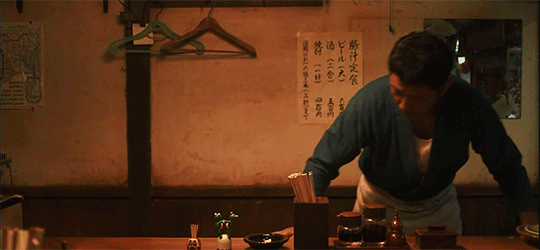
Most of my favorite approaches to slice-of-life are from Japan. When America does slice-of-life, you get it more as sitcoms than thoughtful dramas about everyday life. One of my favorites would probably be Midnight Diner. As Shan defined before, a good slice-of-life drama could go on forever, and in so many ways Midnight Diner has.
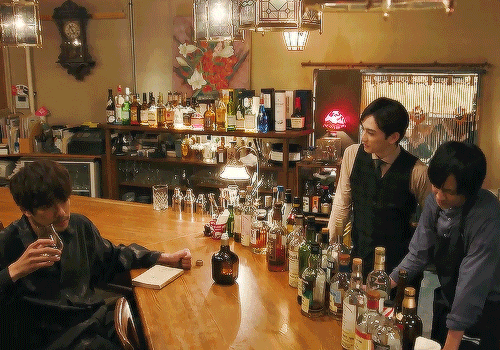
I’m actually currently watching Three Star Bar in Nishi Ogikubo because Machida Keita and Fujiwara Kisetsu are in it.
We Are…Already Familiar With Slice of Life QL
We’ve actually had a few QL projects cover the slice-of-life feeling before.
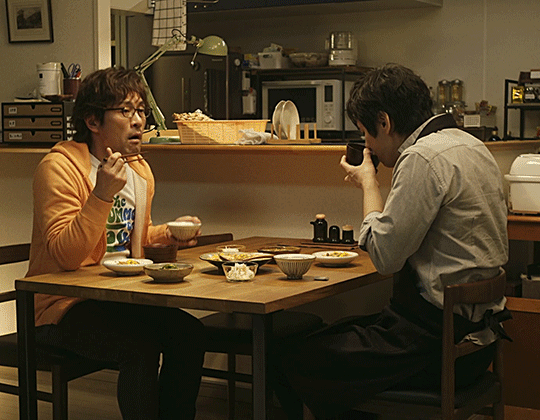
You and I are both big fans of What Did You Eat Yesterday?, a show I loved so much we had to do a whole podcast episode about it.
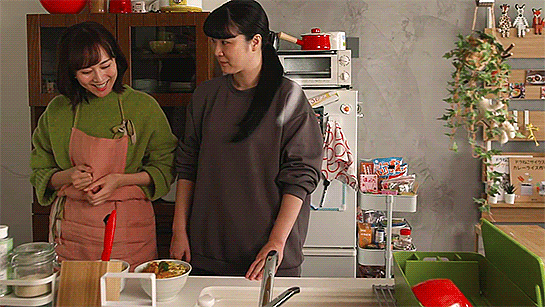
On the lesbian side of the equation, we have the lovely She Loves to Cook, and She Loves to Eat.

We also had Naked Dining, which I had some mixed feelings about.

There's the gay dads drama from Taiwan in Papa & Daddy.
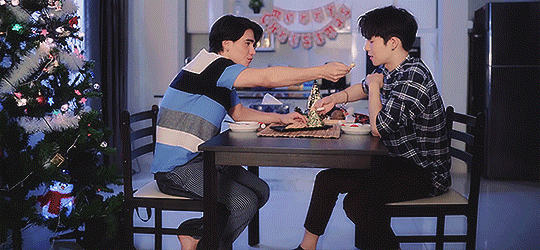
For people who seem to struggle with non-Thai productions, there’s also Ingredients with everyone’s favorite singer Jeff Satur.
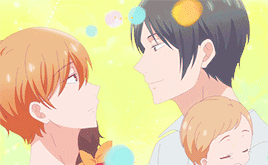
Besides, I argue firmly that Tadaima, Okaeri is the only true slice-of-life BL airing right now. It’s the married gay dads show we’ve been asking forever to get, and it’s even in the omegaverse!
We Are…Possibly Suffering From Recency Bias
It’s surprising for me how hard everyone has fallen for this show, considering the long history of reactions to New Siwaj’s work. He’s been in the genre for over a decade.
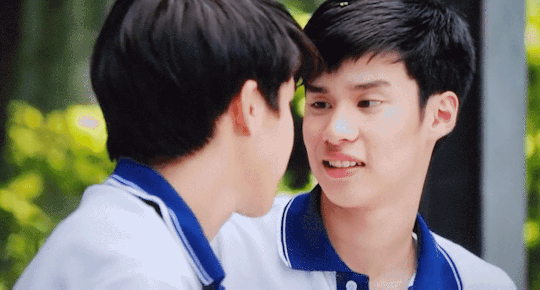
I am intimately familiar with this man’s work, and have been a Make It Right Apologist for years. I’ve been with this man since I got into the genre. This isn’t even his first attempt at 16 episodes about boys in college.
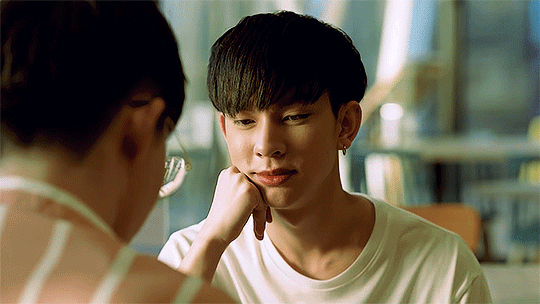
Everyone else watched My Engineer at the time, but I watched EN of Love and was not surprised when Love Mechanics got its own full series afterwards. I’ve been with this man working through gay angst in Make it Right, examining intergenerational queer trauma in Until We Meet Again, fumbling through Between Us, trying for something in Dear Doctor I’m Coming For Soul, hustling in Even Sun, still crying with him over Love of Siam (2007) in My Only 12%, and squandering everyone’s time in Absolute Zero.
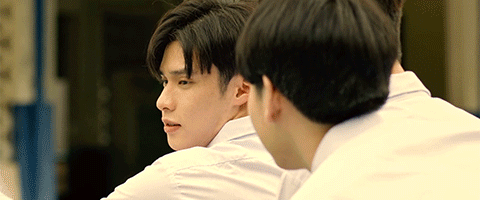
It’s kinda baffling to me that I’m catching strays over not liking New Siwaj works in 2024. It feels weird that the show I’m getting heat over not liking is the least-queer thing I think he’s ever made. I don’t know what that says about current BL tastes. I will say this plainly every time: Queer Truth is Non-Negotiable For Me In a Genre About Boys Kissing Each Other. If that statement bothers you, please swerve on.
We Are…Not the Only Examples of Queer Fun
While we’re here, I wanna talk about how there really is a whole gay world outside of BL. I feel very strongly that Western viewers are extremely rude and often racist when it comes to their disdain of BL. However, there is all kinds of fun to be had in queer cinema if you can handle projects made more than a few years ago.
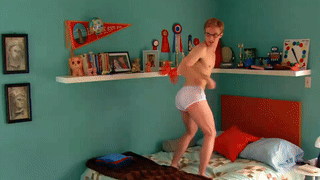
If you want silly fun, you can always go to TLA Releasing. They funded an entire gay parody of the American Pie franchise. They’re great for the types who want to see pretty people smile at each other and have sexy times.

If you’re in the mood for something a bit more serious and heartfelt, you can dip by Strand Releasing. They have one of the best coming-of-age queer films I’ve ever seen. They also picked up a really melancholy Japanese film called Egoist.

My favorite studio, who shows up repeatedly on my BL Syllabus is Wolfe Releasing. They have my all-time favorite Big Eden (2000), and many others.

My point is that there is a huge world of queer media out there well beyond the latest mid-tier BL from GMMTV designed to keep the boys working. We also don’t need to argue that some of their shows are more queer than they actually are, especially when Cooking Crush is right there.
Thanks for the ask!
#answered#slice of life#we are the series#thai bl#bl series#new siwaj#midnight diner#shinya shokudo#three star bar in nishi ogikubo#what did you eat yesterday?#kinou nani tabeta#she loves to cook and she loves to eat#tsukuritai onna to tabetai onna#zenra meshi#naked dining#tadaima okaeri#make it right#en of love#absolute zero#between us#until we meet again#my only 12%#dear doctor I'm coming for soul#another gay movie#the way he looks#hoje eu quero voltar sozinho#big eden#cooking crush#papa & daddy
69 notes
·
View notes
Text
On Boston and Brian Kinney

I’ve seen a lot of folks in the Only Friends tag recently making connections between the show and Queer as Folk, both US and UK versions, which makes sense because QaF is a clear reference for the show, both visually and thematically, and we know Jojo likes to reference western media in his work. One parallel folks are drawing is not tracking for me, however, so I am jumping in the wayback machine and putting on my old QaF stan hat to talk to y’all about Brian Kinney, and why Boston is actually nothing like him. Tagging @bengiyo and @neuroticbookworm who talked this through with me and also @slayerkitty because I saw you were contemplating this connection between the two characters.
So, first, why are people making this comparison? It really boils down to one thing: Brian and Boston are both sluts. That’s… pretty much it. They both like sex and prefer to have it with many different partners, and neither has much use for monogamy. But this is pretty much where their similarities end.
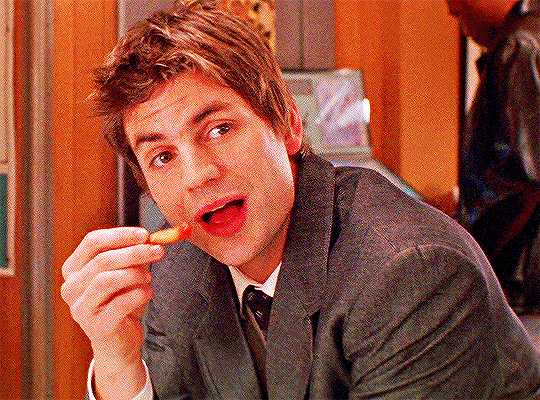
So let’s remind ourselves who Brian Kinney is: a kind of fantasy of a hot, rich, self-actualized gay man with unmatched sexual prowess and a surface level flippancy masking a heart of gold. Brian is an adult man with a thriving career and money that he earned for himself after leaving his abusive and homophobic family (who would eventually explicitly reject him because of his sexuality). As a result, he is defiant in his commitment to live his life as loudly and queerly as possible—which includes a dedication to fucking and sucking, public sex, and a rejection of heteronormative constructs like monogamy.
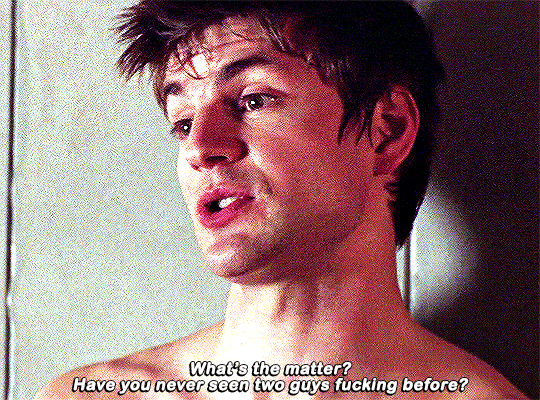
Brian has a very clear moral code he lives by, even if it’s not one most can relate to. He decides to have a son with his (lesbian) best friend because part of him wants to believe in a better future and build a family of his own. He is extremely loyal to his found family even as he’s a jerk to their face most of the time, and he is always working behind the scenes to protect them even as he often hurts their feelings with his glib remarks and shitty behavior. Despite his disdain for monogamy, he never actually tries to destroy any of his friends’ happy relationships (in fact, he tries to sacrifice his own friendship with Michael to ensure he stays with his boyfriend).
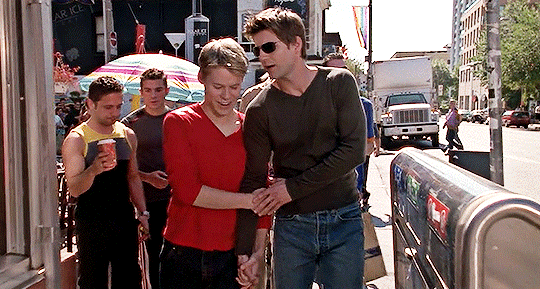
Brian has a sense of responsibility to others and often takes on the blame for things he didn’t even do, which is why he takes baby gay Justin to Debbie and ensures he is cared for even as he tries to dissuade Justin from getting attached to him, and why he cares for Justin in the aftermath of his bashing. He cares deeply about his community, to the point where he pours his money into protecting the local gay scene, literally bankrupts himself to stop an anti-gay politician from winning an election, and gives up a dream job to stay put in Pittsburgh and help rebuild the community after a hate crime.
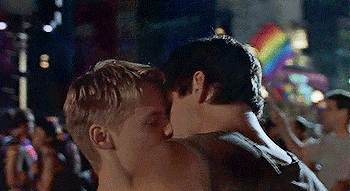
Brian is unflinchingly honest and he avoids making promises because once he does, he knows he will absolutely keep them—he takes his commitments seriously and he always does what he says he will. When he falls in love, he does not abandon his core values but he is willing to make some compromises. And he hides his better self and often wallows in self-destructive behavior because he feels deeply unworthy of love, which goes back to the intergenerational trauma he experienced as a child in an abusive home and the parental rejection he felt due to his sexuality.
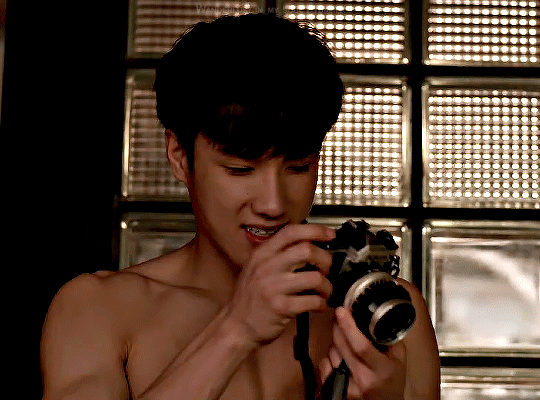
Boston, by contrast, is a character who feels more rooted in reality. He’s a pampered rich kid who is indulged in his hobbies and who already has a life plan laid out for him and paid for by his daddy. He likes to sleep around mostly because it’s fun, and because he knows his life here is temporary so he doesn’t see any point in getting attached to people. In stark contrast to Brian’s out and proud and fuck you if you have a problem with it brand of politics, he is still trying to hide who he is in service of his father’s political career, even if he’s pretty sloppy about it (see him fucking Top in a car with giant windows parked in the driveway at a house party).
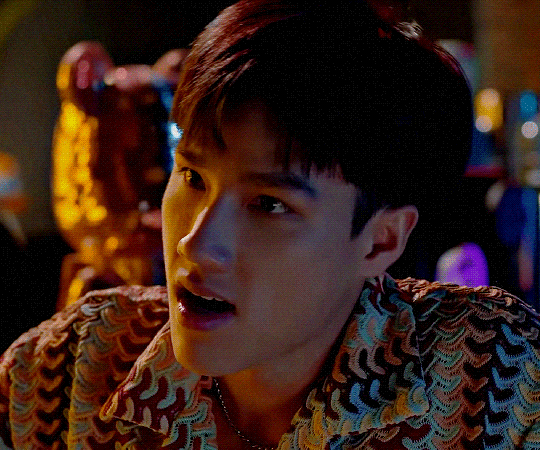
Boston’s moral code is fungible and ever-changing to fit his circumstances—boy is a hypocrite (see his opinions about people filming and photographing him even as he does the same to others constantly). He has no loyalty and no qualms about hurting and betraying his friends, and actively tries to destroy their relationships for sport or as a means to get what he wants. He does not feel responsible for anyone and often lies and ducks accountability for the things he does. He does not care about his community at all, and in fact already has a NYC escape hatch in his back pocket for when he inevitably burns his bridges. He is not as honest as Brian and sends a lot of mixed messages to keep people guessing and on the hook.
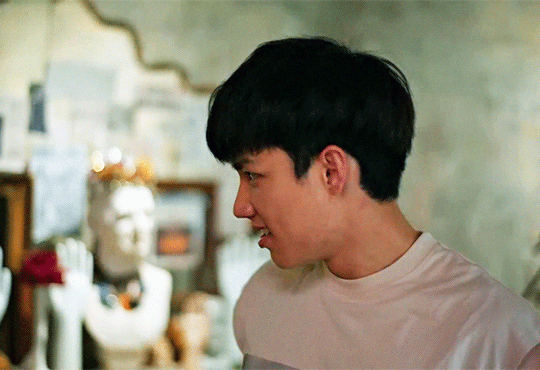
Rather than hurting people by being brutally honest as Brian does, Boston plays psychological games and manipulates his friends and lovers, and he seems to take twisted pleasure in blowing up their happiness. We haven’t seen him make a promise or fall in love, and while there are some signs that he may have some sort of inferiority complex at play (with Mew in particular), his motives are not tied to any past trauma. Boston is just a messy bitch who loves chaos and doesn’t really care who gets hurt as long as he gets what he wants and stays entertained. Where Brian is literally a superhero to his loved ones, Boston is just a very flawed human being.
But Shan, I hear you saying, I thought you liked Boston! I do, besties, I do. He’s a fantastic character and a very real kind of person many of us encounter in our 20s. Because that’s the thing: Boston is so young. He hasn’t developed any sense of responsibility to others or any understanding of the importance of queer community, and he has never had to take care of himself, which is perhaps the biggest difference between him and Brian. Brian has lived independently for more than a decade when we meet him in QaF, whereas Boston is a spoiled rich kid who has barely lived. Brian is a fully realized adult and his more nuanced characterization is a reflection of that; Boston is actually a pretty basic chaotic drama queen who will grow up eventually.
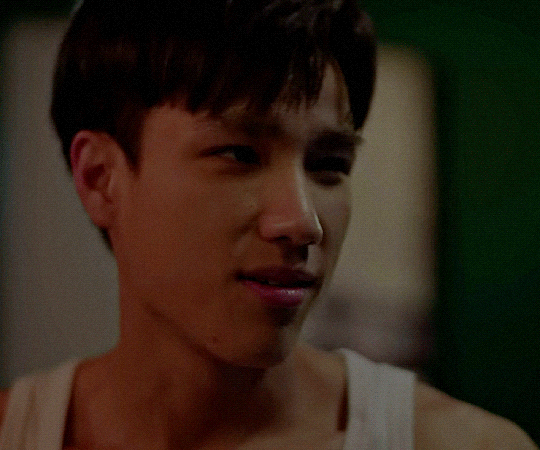
TL;DR: Aside from being promiscuous, Boston has very little in common with Brian Kinney. He is more a reflection of a very real kind of person you will meet on the scene in queer communities than an homage to a larger than life fictional QaF character. And while OF is absolutely referencing some of the themes and values and stylistic flourishes of QaF, it is not making direct parallels to its characters.
#did i write this mostly as an excuse to get brian kinney on this blog?#who can say#only friends the series#queer as folk#thai bl#ofts#only friends#ephemerality squad#shan shouts into the void
233 notes
·
View notes
Text
Love In The Big City: Reflections on the Novel, and Episodes 1 and 2 of the Television Series
(Writing this with big ups to the LITBC Book Club, led by @lurkingshan and @bengiyo -- I only wish my mom life allowed me to have participated in real time in that project! I am taking the LITBC club's lead and watching two episodes a week of this series. SPOILERS from the novel that may make their way into the series are below -- read at your peril if you're pacing yourself on the series.)
In the midst of my reading the novel version of Love In The Big City over the last two weeks, I've been posting news updates (here, here, and here) about South Korean conservatives, many of them (maybe all of them) Christian, trying to censor and prevent the airing of the subsequent drama series, which dropped this week on TVING and Viki.
I want to note how important and ironic it is, macro-systemically, to note that Christianity has such a looming presence outside of the story itself, with "protestors" (bigots) leveraging "Christian values" as a means of trying to keep this already-brilliant show from being aired.
And if you're pacing on the series like I am, and you *haven't* read the novel, then you've only gotten a little taste for how Christian zealotry, among other issues, has and will affect Go Young throughout this story.
But I'm getting ahead of myself: when I picked up the novel, I was more familiar with the noise and drama associated with the television series than I was with the story itself. I'm going to talk a little about my reactions to the novel, and then offer thoughts on the first two episodes.
I read Proust's In Search of Lost Time (yep, all of it) in my freshman year of college, and Hemingway's The Sun Also Rises two years after. I felt the power of both of these stories strongly in Park Sang-young's novel, from the impact that memories and depression can have on a young man, to the permanence of medical conditions that can drive a young man's life towards otherwise unexplored cliffs of grief and pain.
Even reading a synopsis of In Search of Lost Time is a monumental feat, so let me just say that I felt Proust's madeleine-driven devices of memory, within the novel, from Young's frozen blueberries to the chill of the Marlboro Reds in the freezer. The impact of Young being really, really alone, as connected to the empty freezer and the dwindling blueberries after Jaehee's (Mi-ae in the series) wedding, caught me in a hole of loneliness that I felt for Young -- well before I knew enough of his backstory to be truly devastated.
I'm jumping ahead of myself vis à vis the series, but I also felt Proust even more heavily as I was reading about Philosopher Hipster Doofus Hyung, and I threw back to @lurkingshan as I was reading the book, "goddamn it, we are in yet another circle of hipster doom, huh," well before I learned about the medical turning point this story hinges on. Young's incessant attraction to that POS had me thinking about Proust's narrator's simultaneous incessant attraction and disdain for his companion, Albertine, who is a lesbian in early 20th-century France. While the story between the narrator and Albertine is ultimately a devastating one, Proust's narrator winds through the devastation with an equally devastating arm's-length distance, continually avoiding the true depth of pain that his obsessions would have otherwise rendered.
For me, it's such an apropos comparison to think about as we see Young, time and time again, rationalize the avoidance he has to commitment, all while throwing his energy into the relationships he's able to find himself in, ones that he essentially stumbled upon and never instigated.
The pain of his loneliness only grows as he grows into adulthood, and that, paired with his medical reveal, left me with a boulder in my stomach by the time I finished the novel.
Because I'm me (intergenerational trauma auntie), as soon as I finished the book, I couldn't help but think about Young's own boulders that he silently shouldered -- the thought that Young's medical Kylie would rear its head as a means of aiding Young in rationalizing his own assumptions about wanting vs. deserving long-lasting love, and his habit of taking commitment too lightly, even in the context of an already-established relationship with Gyu-ho.
But I also consider the lifelong trauma he suffered vis à vis his mother as an equally heavy boulder: the fact that Young absolutely internalized his mother's disdain for him as a gay man, his mother trying to "correct" his sexuality through conversion therapy, and then seemingly seeing past her son's reality, horrifically ignoring the emotional development of her son. Besides physical abuse, you couldn't do better than Young's mother in permanently psychologically traumatizing a young man who will already face obstacles as a queer individual in a highly conservative society.
All of this combined rendered me unsurprised -- but, of course, still equally devastated -- by Young's eventually pinball-style life, jumping from menial job to increasingly flippant flings.
What we are treated to in the novel are the thoughts that Young can put together as he steps back and assesses his life, especially at the crushing end of the novel. On the surface, someone on the street could absolutely write off Young as another aloof and aging hipster, disconnected with the world; but we know that that's not the case as Young assesses his dashed hopes for the kind of permanent love that he had once pooh-poohed.
Both Proust's narrator, and Hemingway's Jake Barnes in The Sun Also Rises, could join Young in that aloofness, and our own misreads of these men, to an extent. Not only is Barnes held back in life by a previous wartime injury (to me, this is screaming of inspiration to Park Sang Young's novel and the timing of Young's medical condition, but I'll never know if Park was directly inspired by Hemingway's book), but Barnes and Proust's narrator are also both young men growing into their adulthood, within circles of friends in impactful societies that seem to be full of intelligence and engagement, but are ultimately larded with loneliness and the pain of static ambition and conformity.
The last takeaway from the novel that I'll think about for now, one that I think is already leading beautifully into the television series, is the fallacy that we all have or had as young adults: that our youth would last forever. Young says, at the end of episode two,
"As I looked down at those blueberries, I realized that a time I had thought would last forever had come to an end."
Young has to reckon with the fact that his life, as it stands still in his early 30s, hasn't moved forward. It's only gone backwards, into deep habits of disconnection, despair, and loss. That youth itself could serve as a modality of movement for a young person to hopefully grow into a person with more potential is both heartening and brutal to consider -- especially as Young clearly could not take time in his life to take care of himself, as busy with his mother as he ends up being.
There's a lot more I'll likely say about the novel as the series unwinds, but I'm honestly still internally processing it. I'm also amazed to think that both In Search of Lost Time and The Sun Also Rises have significant connections to queer sexuality in both novels, and I just couldn't help going down this comparative literature brainrot cycle for a few minutes.
As to the first episodes of the series: what can I say? No one does it like South Korea. The acting, the cinematography, what Nam Yoon-su is bringing by way of his mere presence, let alone how he bodily channels Young's sexuality and personality. We're in prestige drama territory -- and already by episode 2, we've been taking into multiple facets of Young's internal strife, and his soon-to-be-revealed lifelong aloofness to commitment, while he still yearns for infinite love.
God, those internal contradictions, huh? In our real life, with our friends who are like that -- those friends drive us INSANE, RIGHT? Proust's narrator is SO THIS. A guy who sits in a chair and whines about what he wants, and complains even more when he HAS what he wants, because it's not perfect? He HAS Albertine at so many times, but he can't make her fully love him, because guess what, she's a lesbian, womp womp? Pick a battle, homey.
And yet. We're still devastated by Proust's narrator. Because one of his ultimate flaws is that he'll never remain still, he'll never be truly satisfied, and that conflict DOES keep him from being able to attain permanent happiness. At least we get to see him age, while we're left to wonder with Young and Jake Barnes.
I'm just too excited to see how Nam Yoon-su renders Young's own conflicts, as they simply grow, throughout his life in the series.
*****
I want to make one quick, totally unrelated note, about the airing of this series. At least to me, maybe only to me, the opening animated title cards of LITBC are really close to the imagery and symbolism of the title cards of Netflix Japan's The Boyfriend, a recent dating reality show featuring gay men in Japan trying to find permanent love. The ultimate pairing of DaiShun has been HUGE in Asia this year, with DaiShun doing fan meets across Asia, including in South Korea.
As @lurkingshan and others have emphasized: Love in the Big City is NOT a BL, it is NOT a romance. It is a deep exploration of the life of a gay man in the city of Seoul.
Inspired in part by Sex And The City? Probably. But LITBC is not nearly as flippant as SATC regarding social obstacles that its main characters face. LITBC delves painfully into the various obstacles that queer men face in Seoul, from social to medical discrimination.
The Boyfriend actually touched a lot on these obstacles as well. Some of the participants were out, but not all of them; one participant, Tae-heon, used the show itself as a means of coming out to his parents.
While some of us have seen the majority of queer content in Thailand turn very primarily towards BL romances, I still believe that Thailand can and will produce high-caliber media about queer life aside from romance, as it did in 2022's The Miracle of Teddy Bear (which I just finished this week, I'm fine, thanks for asking, devastated actually) and in other cinematic pieces. But I also want to note how incredibly refreshing it is to see Japan and South Korea also pick up this thread through The Boyfriend and LITBC, respectfully, producing content out of the usual romance loops that we've come to expect from BL media.
Anyway. If there's a connection between LITBC and The Boyfriend, with both entities talking MUCH more about holistic queer life in society, then I celebrate it, and I want more, more, more of it.
#love in the big city#love in the big city the series#litbc book club#what up book club members i didn't follow any prompts but i hope you enjoy this piece and that it made sense!#the boyfriend#park sang young
47 notes
·
View notes
Text

"The Ruby Fruit, when it’s open, is a dimly lit, cozy wine bar/restaurant where the vegan hot dogs are actually good and so is the rest of the menu. It’s a neighborhood lesbian bar that seems to say, our community deserves something really chic and elevated. If you want a messier, wilder night, you can go to a different gay bar and have a great time. If you want to eat a nice, dietary-restrictions-friendly meal with your friends/your date surrounded by other queers and still make your 9pm bedtime, The Ruby Fruit is for you.The bathroom is Indigo Girls-themed and outside it there’s a bulletin board where people left their numbers and notes for each other. You are as likely to see a famous bisexual from your favorite TV show as you were to see an ex you hadn’t thought of in a decade. It attracts a diverse, intergenerational crowd. You can get dressed up or you could go in sweatpants.
Listen: I’m not saying The Ruby Fruit is perfect. Those little wooden stools always make my back go into spasm and I never manage to spend less than $75 on cloudy wine and olives and fries. Dykes like to glare at each other across the room, that kind of undefinable does-she-want-to-fuck-me-or-does-she-hate-me look. When it was open, the space often didn’t feel big enough for the demand, and they didn’t take reservations, which made going feel like a gamble on weekends. You always had to have a back-up plan, where to go for dinner if you couldn’t get a table.
And you know what? I love it all the same.
Gabrielle Korn via Los Angeles Lesbian Bar Ruby Fruit Is Fighting For Its Survival. We Really Need It To Win.
21 notes
·
View notes
